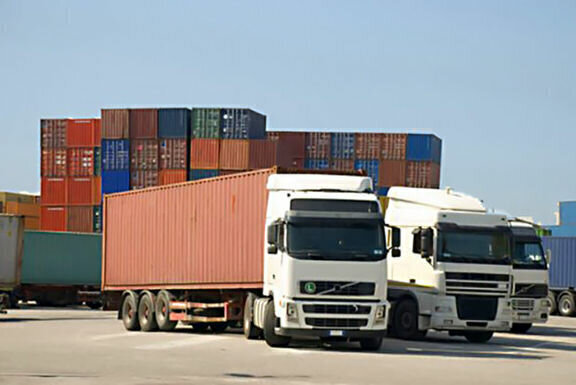Iran’s quarterly export to Afghanistan up 31% on year

TEHRAN – The value of Iran’s export to Afghanistan increased 31 percent during the first quarter of the current Iranian calendar year (March 20-June 20), as compared to the same period of time in the past year, the head of Iran-Afghanistan Joint Chamber of Commerce stated.
Mahmoud Siadat said that the country has exported products worth $517 million to its neighbor during the three-month period.
“We should move toward joint investment for preserving the market of Afghanistan”, he further commented.
On June 29, the head of Iran’s Birjand Chamber of Commerce said Iran and Afghanistan have the capacity to boost trade exchanges to $5.0 billion, the portal of Iran Chamber of Commerce, Industries, Mines and Agriculture (ICCIMA) reported.
“Considering the stabilization of political conditions in Afghanistan, there is no risk in trade with this country, and by participating in the country’s construction projects, it is possible to develop bilateral exchanges up to five billion dollars,” Alireza Khameh-Zar said.
In Early July, Iran’s commercial attaché in Afghanistan said the Islamic Republic’s non-oil export to the neighboring country registered a 41 percent growth in the first two months of the current Iranian calendar year (started March 20, 2024) compared to the same period last year.
Iran’s export of non-oil goods to Afghanistan increased by $102 million in the first two months of the current Iranian calendar year, showing a 41 percent hike compared to last year’s corresponding period, Hossein Roustaei said.
He added that Afghanistan is Iran’s sixth export target market and that Afghanistan is one of the export target countries with the highest positive balance of trade with Iran.
The official put the volume of Iran’s export of non-oil goods to Afghanistan from March 19 to May 22, 2024, at $350 million, showing a 41 percent increase compared to the same period last year.
In this period, Iran exported 181,000 tons of non-oil goods to Afghanistan, Roustaei noted.
Light oils, oil products, oil gases, ingot, iron, steel, compound, polyethylene, light- and heavy hydrocarbons, foodstuff, urea, tomato, tree apples, cement, types of polyethylene, potatoes, fresh fruits and vegetables, orange and infant formula were the main products exported from Iran to the neighboring country, he stated.
Iran imported more than $7.0 million of products from Afghanistan between March 19 and May 22, 2024, he added.
The Islamic Republic exported over $1.8 billion of non-oil products to the neighboring country in the previous Iranian calendar year (ended March 19, 2024), registering a 13.6 percent growth compared to a year earlier.
According to Roustaei, the country exported 3,414 tons of non-oil products worth $1.871 billion to Afghanistan in the previous year.
The official noted that Iran’s annual non-oil exports to Afghanistan also rose by 28 percent in terms of weight compared to the same period last year.
Increasing the number of trade and business delegations, facilitating the activities at border crossings, increasing working hours at the customs offices, holding joint economic commission meetings between the two countries in Tehran, holding business conferences in Kabul, Herat, Tehran, and Mashhad, and holding an exhibition of the export potentials of the Islamic Republic of Iran in Herat were among the most important factors in the rise in the export of non-oil goods from Iran to Afghanistan, he emphasized.
Oil products, iron and steel ingots, natural gas, light and heavy hydrocarbons, iron, steel, foodstuff, types of polyethylene, fresh fruits and vegetables, and cement were among the main products exported from Iran to Afghanistan in this period, Roustaei added.
On August 9, the official said that in order to improve Iran’s presence in Afghanistan's markets, the trade between the two countries should move towards newer models of cooperation.
“Afghanistan supplies more than 80 percent of its market needs through imports, and imports from Iran constitute 25 percent of this amount,” Roustaei said in a meeting on opportunities and challenges of the Afghan market, held by Iran Chamber of Commerce, Industries, Mines and Agriculture (ICCIMA).
“The establishment of national security and the central government in Afghanistan over the past two years have improved the conditions of trade with this country,” he added.
Afghanistan has prioritized the exploitation of the country’s mines. Therefore, Iran's traditional economic relation with Afghanistan should enter into newer models of cooperation, he stressed.
According to Roustaei, investment and operation of mines, technical and engineering services, mechanization of agriculture and smart agriculture, construction of transportation infrastructure, and renewable energies are among the new fields that should be considered for cooperation between the two countries.
He further emphasized that the establishment of a joint economic zone between the two countries should be implemented as soon as possible, saying: “Considering the recent conflicts between Afghanistan and Pakistan, Afghanistan wants to use the opportunity of Chabahar port in the best way. Iran can increase its transit role in the import and export of Afghanistan from the current 50 percent.”
On August 13, IRNA reported that Afghanistan has welcomed Iran’s investment in the country’s economic projects.
In a meeting with an Iranian trade delegation in Kabul, Afghanistan's interim Deputy Prime Minister Mullah Abdul Ghani Baradar Akhund said that his country is eager to attract Iranian investors in order to develop Afghan mining industry, generate solar electricity and expand railway connectivity.
The Iranian delegation also proposed to launch a joint special industrial zone with Afghanistan.
Noting that Afghanistan has turned into a good place for making investment, Mullah said that the relevant ministries and organizations there, will cooperate and work closely with the investors.
The Iranian delegation, made up of economic and trade players, also held a separate meeting with Afghanistan’s acting minister of commerce Haji Nooruddin Azizi. They called for the formation of a joint economic-mining zone between the two neighboring countries.
MA
Leave a Comment